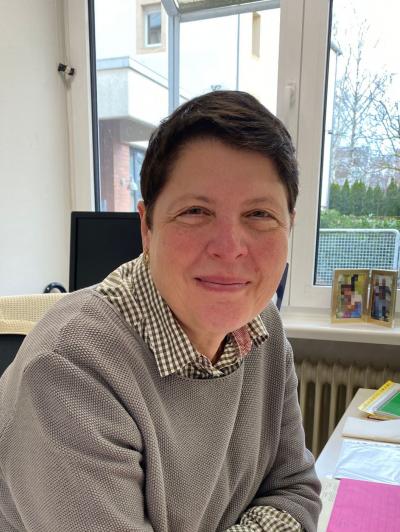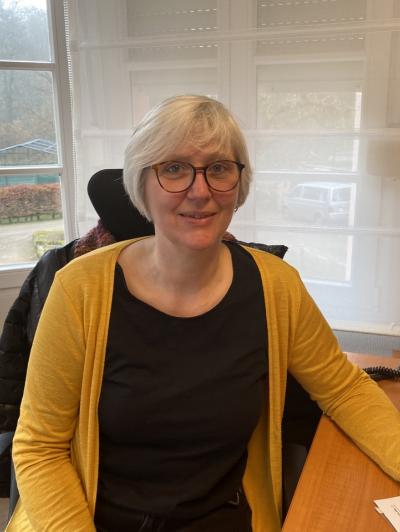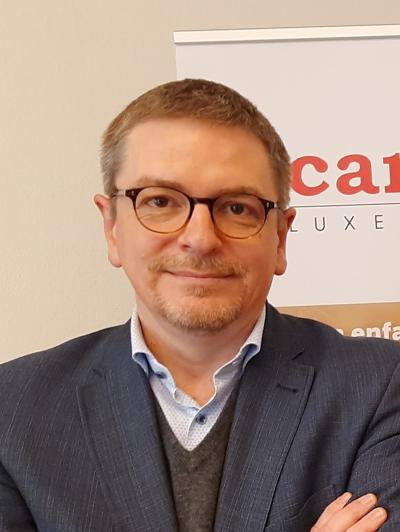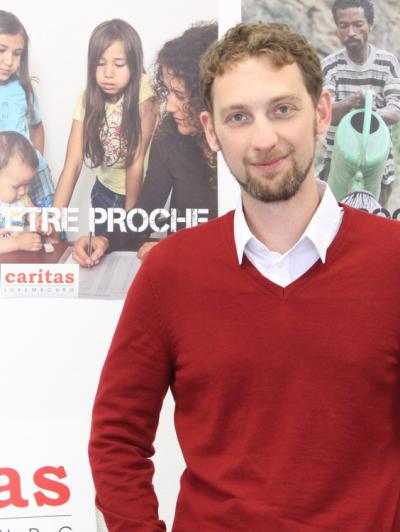
José Cordobès - Regaining self-esteem through work
Thursday 18 March 2021
José Cordobès is a social worker and since 2019 has been in charge of the follow-up of REVIS beneficiaries employed in the framework of an activation measure in the different services of Caritas Accueil & Solidarité.
HOW DID YOU BECOME A SOCIAL WORKER?
I discovered the profession by chance. I was studying economics at university and I had difficulties following some of the courses, mainly those on very abstract subjects. I couldn't understand the purpose of them. The more concrete courses, on the other hand, interested me a lot. So some friends who were studying to become social workers told me to join them because what they were studying was more in line with what I liked to do. They were not wrong.
WHAT DOES YOUR JOB INVOLVE?
My work is very varied. First of all, I have to identify internally at Caritas Accueil & Solidarité the needs for reinforcement of the teams and the possibilities to occupy people who are REVIS beneficiaries and who can be activated. At present, Caritas Accueil & Solidarité employs about fifty people in the framework of these measures, mainly in the kitchen, at the reception desk and in the technical team. We also have a gardening project in Kopstal and a firewood cutting project and we are constantly thinking about developing new projects. When the needs are identified, I pass them on to the ARIS (Regional Social Inclusion Officers) who send me the people they are following who would be interested in one or other job as part of their individual social integration project. The person then signs a TUC contract with Caritas Luxembourg and is integrated into the team. Regular follow-up is carried out to ensure that the person feels comfortable in his or her job and that the work he or she is doing is contributing to the fulfilment of his or her individual social integration project. Evaluations are carried out regularly. They take into account not only the work aspect, but also all the other aspects of the person's life and if there is a need on their part, I try to help them as best I can. In parallel to my socio-professional follow-up, the job coaches also intervene, who take care of the training and daily follow-up of the person's work.
WHO ARE THE PEOPLE CONCERNED BY THESE ACTIVATION MEASURES?
These are people who, for various reasons - medical, lack of language skills, dependency problems, experience of homelessness - are unable to take up jobs in the first labour market. Most of them only work 20 to 30 hours a week, the rest being spent either on language learning if they are beneficiaries of international protection, or on medical follow-up or other socio-educational measures.
WHY ARE THESE ACTIVATION MEASURES IMPORTANT?
These measures allow these people to regain their self-esteem. Thanks to their work, in an association like Caritas Luxembourg, they feel valued and have the impression that they are doing something useful not only for themselves, but also for society. Many of them tell me that what is important for them is to show their family, especially their children, that they are capable of going to work like everyone else. At the same time, these measures are an opportunity for people to get out of their homes, to meet other people and to feel less isolated. Finally, through their work, they acquire skills that they did not have and thus increase their employability. For beneficiaries of international protection, it is also an opportunity to use the language they are learning with their colleagues and to go beyond the strict framework of the language course. For all these reasons, Caritas Luxembourg attaches great importance to these activation measures.
IF YOU COULD EXPRESS ONE WISH, WHAT WOULD IT BE?
My wish would be that the people we employ in the framework of an activation measure could benefit from professional training in addition to the know-how they receive from the instructor-coaches and that the skills they acquire with us could be certified in one way or another. This would not only make them more competitive in the job market, but also make them feel even more valued.
WHAT DO YOU PARTICULARLY LIKE ABOUT THIS JOB?
It's the relationship you can build with the person. It is a relationship that is at eye level, based on transparency and common goals.
Another thing I particularly like is that the improvement in the person's situation is noticeable from the very first weeks. You can feel that thanks to the work, people feel better, more confident, more autonomous. It is a pleasure to see them evolve positively.
Linked news
Donate
Your donation is essential to ensure the continuity of Caritas Luxembourg's actions in the service of the poor.
Other donation methods





